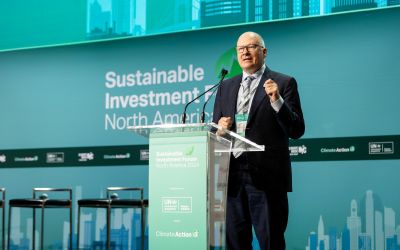Government must accelerate action to deliver the infrastructure needed to meet climate goals
Government must develop stronger staying power and focus on fewer, bigger, better targeted initiatives to deliver the infrastructure needed to meet its long term goals for economic growth and a lower carbon economy, the UK’s independent advisers on infrastructure have said.

Government must develop stronger staying power and focus on fewer, bigger, better targeted initiatives to deliver the infrastructure needed to meet its long term goals for economic growth and a lower carbon economy, the UK’s independent advisers on infrastructure have said.
The last year has seen progress towards major infrastructure objectives the National Infrastructure Commission says, but warns that “in a range of areas government is off track to meet its targets and ambitions”.
The Commission’s annual Infrastructure Progress Review highlights positive progress towards nationwide coverage of gigabit broadband by 2030 and continued growth in renewable electricity, both of which it notes have enjoyed a relatively stable policy environment.
The report meanwhile criticises “negligible advances in improving the energy efficiency of UK homes, the installation of low carbon heating solutions or securing a sustainable balance of water supply and demand,” which have been subject to a more short term and changeable approach in recent years.
The report points out that government has set an ambition for at least 600,000 heat pumps to be installed each year by 2028, while only 55,000 were fitted in 2021 – meanwhile, 1.5 million gas boilers were fitted. Similarly, government expects 300,000 public electric vehicle charge points to be in place by 2030; but only 37,000 public charge points are currently installed.
The Commission also calls for a “greater sense of certainty” around progressing HS2 and Northern Powerhouse Rail, stressing that delays inevitably push back the economic benefits for communities.
In its proposals for “getting back on track”, the Commission calls for:
- Policy staying power to deliver long term goals and reduce the uncertainty that adds cost for business and delays or deters investment;
- Fewer, but bigger and better interventions from central government, with tighter strategic focus on the areas it can make the most difference rather than “expending too much effort on many small scale funding interventions and repeated consultations, trying to maintain optionality in all areas”;
- Greater devolution of funding and decision making, moving away from competitive bidding processes and building on the multi year funding settlements for combined authorities with long term devolved budgets for all local transport authorities, while also allowing greater revenue raising powers at a local level;
- Unblocking delivery barriers, specifically the planning regime for nationally significant infrastructure projects, where updated National Policy Statements for key sectors are the first big step.
The Commission credits government for continued investment in infrastructure in the short term – with a commitment of £100 billion to support economic infrastructure from 2022-23 to 2024-25 – but warns “private sector investment is also critical for meeting the government’s long term targets on infrastructure."
The Commission will publish a review on how to accelerate the planning system for major infrastructure projects later this spring. This will be followed in the autumn by the second National Infrastructure Assessment, setting out costed recommendations on infrastructure priorities for the next 30 years.
Find out more here.






